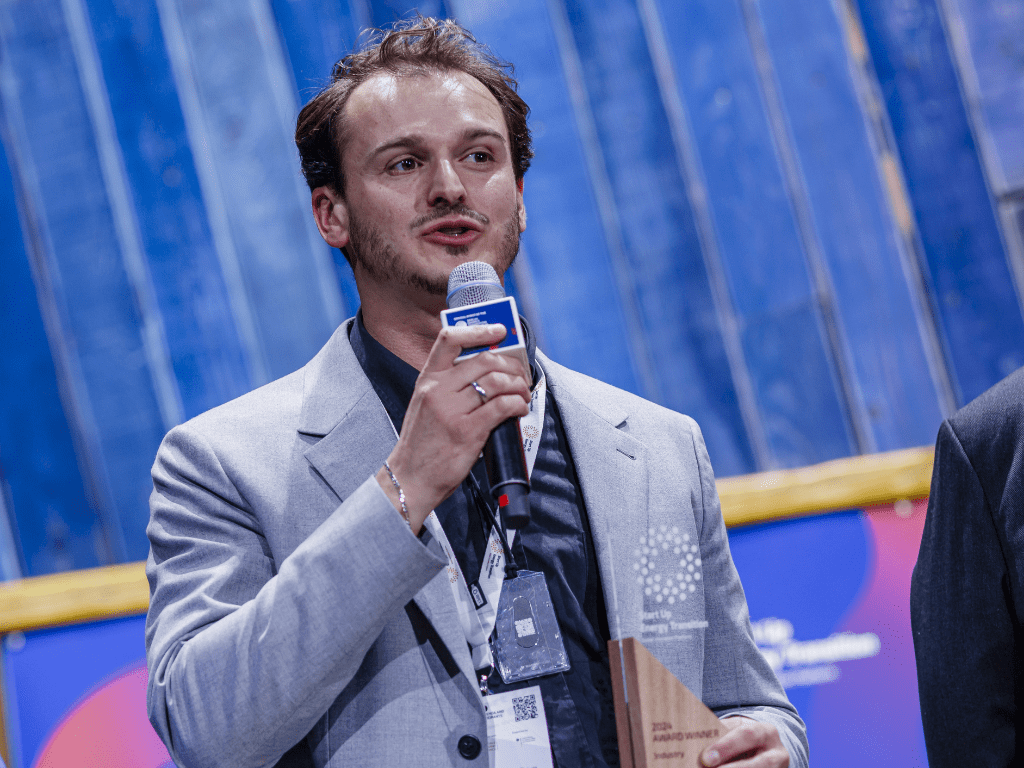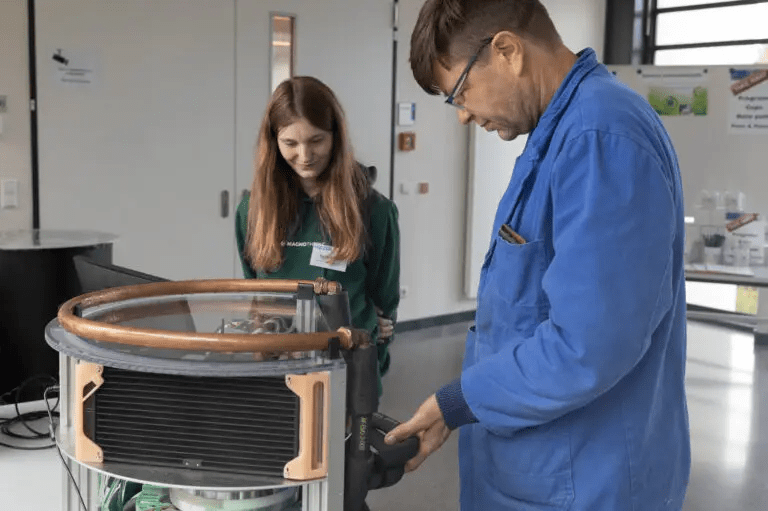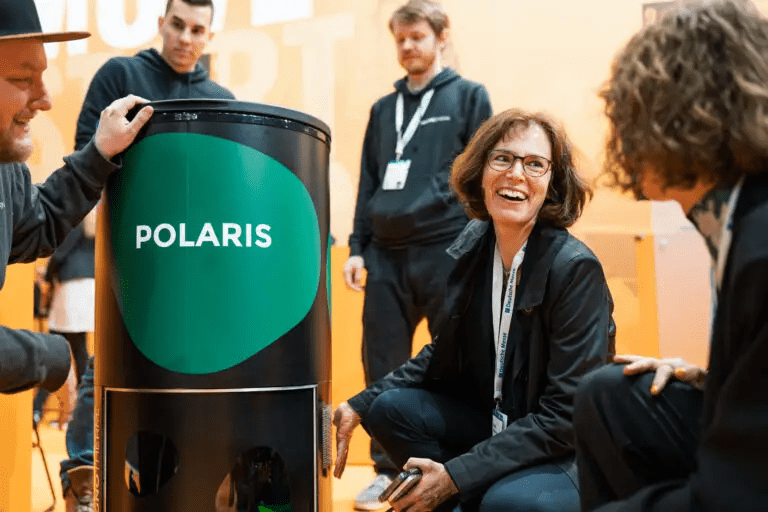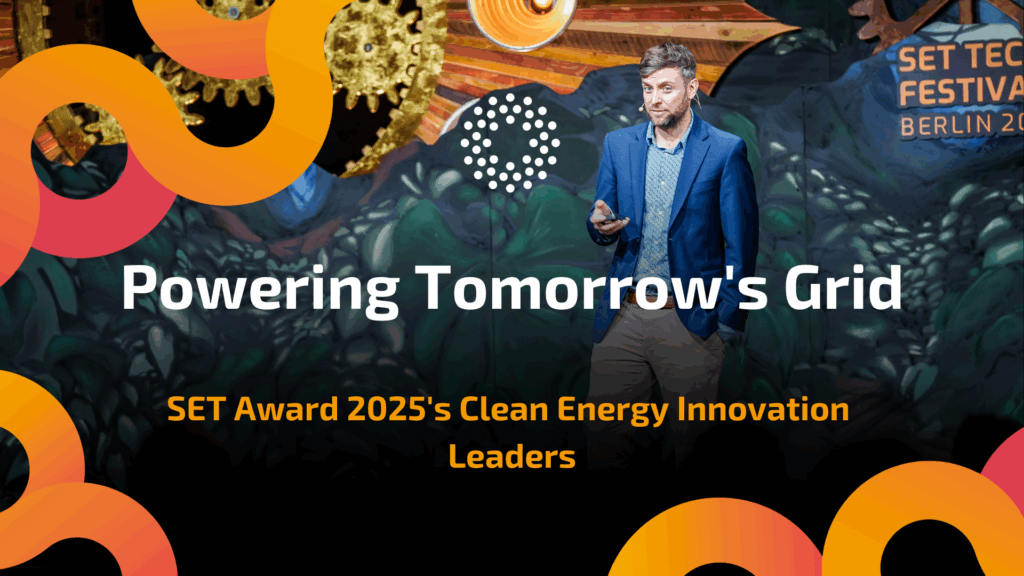The climate tech sector is on an extraordinary ascent, with global investment in energy transition reaching a record $1.8 trillion in 2023, marking a 17% increase from the previous year. This upswing signifies a decisive shift towards clean technology solutions, reflecting a deepening commitment to sustainable innovation globally. The 2024 SET100 startups, pulled from more than 430 applications from over 75 countries, are at the forefront of this charge—a result of their pioneering innovations driving significant advancements in high-impact sectors.
In the first of our deep-dive interviews with the SET24 winners, we talk to Magnotherm, the winner of the 2024 SET Awards ‘Industry’ category. Managing to catch five minutes with business development manager, Juan Stockermans, during the SET Tech Festival, he discussed how his company’s solution of magnetic cooling technology is both old and new, how it can offer businesses of all sizes quick, actionable and scalable solutions to their cooling needs, as well as the challenges the German startup has encountered along the road to it becoming an award-winning young company.

Magnotherm began as a startup spin-off from Darmstadt’s Technische Universitaet. The startup’s international team of over 40 people is led by Timur Sirman, pictured above, and Dr. Max Fries. Magnotherm’s innovative magnetic cooling technology is based on solid magnetocaloric materials, plain old magnets, and H2O. The science, Stockermans tells us, is old but the solution Magnotherm has developed is brand new and has the potential to revolutionize cooling worldwide. Magnotherm‘s magnetic cooling technology beats the efficiency of other temperature systems by up to 40 per cent, and it completely eliminates refrigerant gases – avoiding direct greenhouse gas emissions.
“So what we do is we completely replace compressor technology and current cooling solutions,” explains Stockermans on the sidelines of SET Tech Festival’s startup showcase zone. “The problem with conventional cooling today is the refrigerants themselves, they’re extremely toxic, flammable, pressurized – you name it, there’s a plethora of problems. But what we do is we stay away from all that.”
Magnotherm has innovated and adapted its own “magneto-chloric material” – the natural property of which is it heats up and cools down when exposed to magnetic fields. “That’s how we can create cold without the need for a compressor system,” adds Stockermans, “which leads to a much, much cleaner way of cooling because we eliminate the biggest, environmentally harmful cooling component. And, as a bonus, we also increase efficiency and reduce overall maintenance costs for cooling devices.”

In the industry sector’s march towards a net-zero horizon, startups are bringing in a strategic confluence of technological innovation and sustainability principles to reshape operational paradigms. Highlighting this shift, Magnotherm distinguishes itself with its magnetic cooling technology, arguably marking a critical step in helping potentially to slash the carbon emissions of larger, industry-wide processes.
Data point: The sector’s investment in innovation is underscored by the recent data showing an increase in climate tech investment, particularly in industry, which expanded its share to 17% in 2023. – BloombergNEF.
Zooming out further and looking at other SET100 2024 startups, we see further potential. InPlanet distinguishes itself with its carbon sequestration tech, while PH7 Technologies‘s novel closed-loop process exemplifies the industry’s pivot to circular economy models, reclaiming vital metals like nickel and copper from waste, thereby mitigating environmental impact. The endeavours of OCTAVIA CARBON in Direct Air Capture (DAC) and Greenly‘s analytical prowess offers a data-driven lens to refine corporate climate strategies, enhancing the sector’s sustainability quotient.
Meanwhile, UP Catalyst‘s focus on carbon-based materials innovation stands as a beacon of progress in decarbonising industrial practices. This suite of innovations embodies a holistic transformation, steering big industry towards greener alternatives and heralding a systemic evolution.
“So UP Catalyst essentially utilizes CO2 emissions into carbon nanomaterials and graphite by using molten salt technology, carbon capture and electrode transformation,” explained Karl-Gustav Tamberg, head of sales at UP Catalyst. “Of course, perhaps in more simple terms: it’s an electrolysis process, where CO2 is pumped into the reactor, where there is an alternate cathode, and by applying current to the cathode and anode, you can split the CO2 molecule into oxygen and carbon. Carbon is then collected on the cathode side as a kind of deposit. Then it’s cleaned, removed and purified, and can be sold onto the EV battery market as tubes of black graphite.”
Like Magnotherm, and its peers OCTAVIA CARBON and PH7 Technologies, UP Catalyst’s technology not only presents a solution keyed into the needs of the new industrial economies and business needs of tomorrow, but its solution is often far more economical and efficient than current methods.
“That’s one of the key points,” explains Tamberg. “Because as I said before, we’re 60 times more energy efficient than our competitors.” So what is the problem? “I think the biggest hurdle is having enough capital but also in convincing your customers to sign or sign off on agreements. Because, in reality, you have to show if it’s a new technology, well you have to be able to show that this is scalable.”

Magnotherm’s Stockermans echoed this feeling: “I’d say the biggest hurdle have to get over is the problem of trust,” Stockermans tells me this as he hands me one of his perfectly cooled sodas from Magnotherm’s demonstrative, magnetically cooled drinks fridge, the Polaris (pictured, above).
“So in terms of evolution, this technology is not new,” he adds. “We’ve known about magnetic fields since more or less the 1920s. The problem with it is back then, nobody saw the impact on climate as we do now. So a lot of technologies weren’t developed. That’s why compressor technology took off such as HCFCs and ozone-depleting chemicals. But, as we’ve seen, this cooling technology has failed. So that’s why we’re here. With a technology that is old but a solution that is new, and that works.“
What’s next for Magnotherm? The company is already preparing to roll out its first double-door commercial fridges for supermarkets and businesses. For more info, reach out to Magnotherm here.
Follow Magnotherm’s LinkedIn here, deep dive into SET Tech Festival and SET Award’s 2024 impact here, check out our other SET24 winners here and download the 2024 SET100 here.


